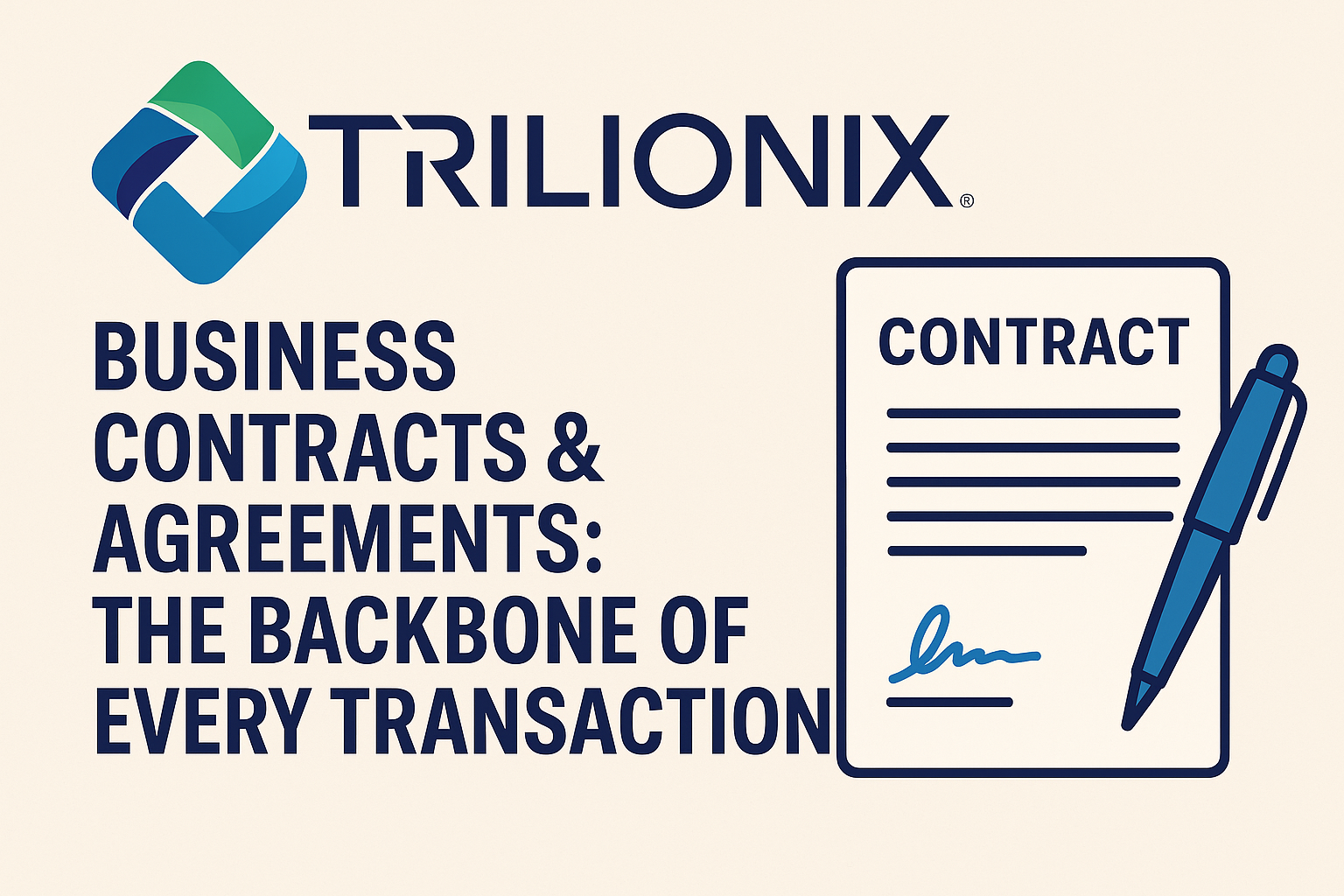In the fast-moving world of modern business, every transaction big or small relies on clarity, trust, and legal protection. Whether you’re a startup founder, IT service provider, freelancer, or established brand, business contracts and agreements are the backbone of smooth operations.
In 2026, where digital transformation, remote work, and global partnerships are the new normal, well-structured contracts are more important than ever. They protect companies from disputes, set clear expectations, and create a professional foundation for all business relationships.
This blog explores why contracts matter, the essential agreements every business needs, and how they support long-term success.
🔹 Why Business Contracts Matter
✔ Prevent misunderstandings
A clear agreement ensures both parties understand deliverables, timelines, and payments.
✔ Reduce legal risk
Contracts act as legal protection against disputes, fraud, and breaches.
✔ Build trust
A well-written contract showcases professionalism and increases credibility.
✔ Protect intellectual property
Important in IT, creative, SaaS, and technical industries.
✔ Define responsibilities
Contracts clearly outline who does what avoiding confusion and delays.
✔ Ensure smooth operations
Every project or partnership moves faster when expectations are documented.
🔹 Essential Business Contracts & Agreements in 2026
Here are the most important agreements every business should have:
1. Service Agreement
This contract is used when you provide services to clients.
Includes:
- Scope of work
- Deliverables
- Timeline
- Payment terms
- Communication rules
- Revision/changes policy
A solid service agreement prevents scope creep and protects your time and effort.
2. Client Agreement
Similar to a service agreement but more detailed, especially for long-term clients.
Covers:
- Responsibilities of each party
- Confidentiality
- Payment schedules
- Termination clauses
- Dispute resolution
3. Partnership Agreement
When two or more people run a business together, this agreement is crucial.
Defines:
- Ownership percentage
- Profit sharing
- Roles & decision-making
- Exit strategies
- Legal rights
It prevents internal conflicts and ensures business continuity.
4. Vendor & Supplier Agreement
Used when a business buys goods or services from suppliers.
Includes:
- Pricing
- Delivery timelines
- Quality standards
- Warranty terms
- Penalties for delay
Helpful for long-term supplier relationships.
5. Non-Disclosure Agreement (NDA)
Protects confidential information shared during business discussions.
Covers:
- What information is confidential
- Restrictions on sharing
- Duration of confidentiality
- Penalties for breach
NDAs are essential for IT firms, startups, creators, and anyone sharing sensitive data.
6. Service Level Agreement (SLA)
Common in IT, SaaS, hosting services, and maintenance contracts.
Defines:
- Uptime
- Performance metrics
- Response times
- Support levels
- Penalty if standards are not met
SLAs ensure high-quality service delivery.
🔹 Benefits of Strong Business Contracts
1. Avoid Disputes & Mistakes
Contracts make everything clear from the start.
2. Protect Your Money & Time
No confusion about payments, deadlines, or deliverables.
3. Legal Protection in Court
If a dispute occurs, a contract becomes your strongest evidence.
4. Builds a Professional Image
Clients take you more seriously with proper legal documentation.
5. Improves Communication
Everyone knows their responsibilities.
6. Helps Scale Your Business
As your business grows, contracts keep operations organized.
🔹 Digital Contracts: The New Normal
In 2026, most businesses rely on e-contracts with:
- Digital signatures
- Online verification
- Cloud storage
- Automated reminders
They save time, reduce paperwork, and make remote business easy.
🔹 When Should You Use a Contract?
Always — especially for:
✔ New clients
✔ Large projects
✔ Partnerships
✔ Hiring freelancers
✔ Outsourcing work
✔ Buying goods/services
✔ Sharing confidential information
Even simple deals should have minimum written agreements.
⭐ Conclusion
Business contracts and agreements are more than documents they’re the foundation of trust, clarity, and legal protection. As companies move into 2026 with bigger digital footprints and global collaborations, the need for strong, clear, and legally sound contracts is more important than ever.
Whether you’re a growing startup, an IT service provider, or an established brand, investing in the right agreements will protect your business and support long-term success.
If you need help creating contracts, policy documents, or legal-ready templates — just let me know! I can prepare them for you.





